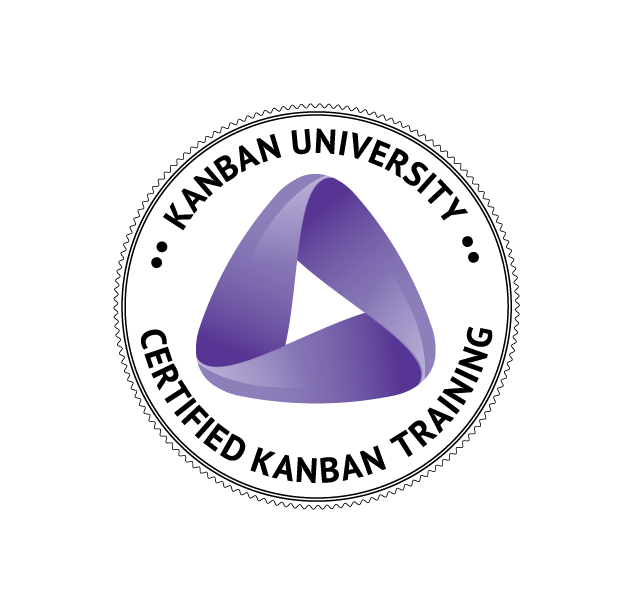Kanban System Design (KSD)
Course description

This course is aimed for those who want to acquire solid knowledge about the core of the Kanban method, and want to design or improve Kanban systems.
The Kanban Method is a management method to improve service delivery, catalyze improvements and evolve a business to be "fit for purpose". It uses concepts such as Lean to improve performance and streamline your professional activities and projects.
The Kanban Method is based on making visible what is otherwise intangible knowledge work, to develop a common understanding of the current way of working. We look at how things are working and where there are sources of dissatisfaction. Then improvements are identified and introduced. The Kanban System Design course provides the foundational background of The Kanban Method and then guides the students through the process of understanding their systems so they can design an appropriate Kanban system to meet their needs. By understanding the core concepts of The Kanban Method, you will be able to design a Kanban system to improve visibility, communication, and collaboration within your team.
Unlike some other more radical approaches, the Kanban Method adapts to your context and does not prescribe a one-size-fits-all predefined template. This adaptability reduces resistance to change.
Regardless of your current way of working (non-Agile, Agile, Scrum, SAFe, Scrumban...), if you currently work with teams that have “plateaued” and aren’t improving, this course will help you to design visual management that shows where improvement opportunities exist.
Kanban System Design is the reference training on the Kanban method. The training is provided by an Accredited Kanban Trainer.
Learning Objectives
- Understand the basics, motivation, and benefits of The Kanban Method.
- Experience flow in a simulation of a Kanban system.
- Learn how to run the Kanban meetings to focus on the work and allow the team to organize around it.
- Build and design a Kanban system using the STATIK approach (System Thinking Approach to Introducing Kanban).
- Become faster and more responsive, with better risk management and governance.
- Understand "Pull" systems and how they help reduce overburdening.
- Learn how to utilize key metrics such as Lead Time, Run Charts, and Cumulative Flow Diagrams to make continuous improvements.
Course outline
- Introduction to the class
- What is the Kanban Method?
- Motivation for adopting the Kanban Method
- Module 1 - Experiencing flow
- Simulations and debriefing (Okaloa FlowLab - "Team Flow" Simulation)
- Module 2 - Understanding Kanban
- Kanban Principles
- Kanban Practices
- Key metrics and charts when using Kanban
- Manage Flow: Little's Law, flow efficiency...
- Kanban meetings
- Module 3 - The STATIK Approach
- Case study: "Microsoft XIT"
- The STATIK Approach (System Thinking Approach to Introducing Kanban)
- Classes of service
- Module 4 - Designing a Kanban system
- Elements of Kanban systems
- Patterns of board and ticket design
- Case study: board examples
- Practice: design a Kanban system
Who is it for?
Anyone involved in the implementation of Kanban or its daily use, it includes but is not limited to:
- Product Owners, Project Managers, Program Managers, CIO
- Managers, Team leaders
- Agile Coachs, ScrumMasters
- Development leads, Test leads
- Architects, Business Analysts
- Team members
Prerequisites
No prerequisites are required to take part in this training.
Format
The course is a mix of presentations, simulations, case studies, and exercises.
Practical information
- Duration: 16 hours
- In person : 2 days
- Virtual: 4 half-days (4 mornings or 4 afternoons)
- Public class or private class
- In "in person" or "virtual" class
- In English or in French
Certification
- Participants will receive a certificate of completion for the Kanban System Design course (KSD).
- Students completing this course and the Kanban Systems Improvement (KSI) course will receive the Kanban Management Professional (KMP) credential.

Course fee (2026)
- Early bird (-20%): €1320 / person
- Full price: €1650 / person
- Private session for your company: ask for a quote.
Schedule & Registrations
- Full schedule
- Request for information and registrations: sebastien.goodwin@kudja.fr.